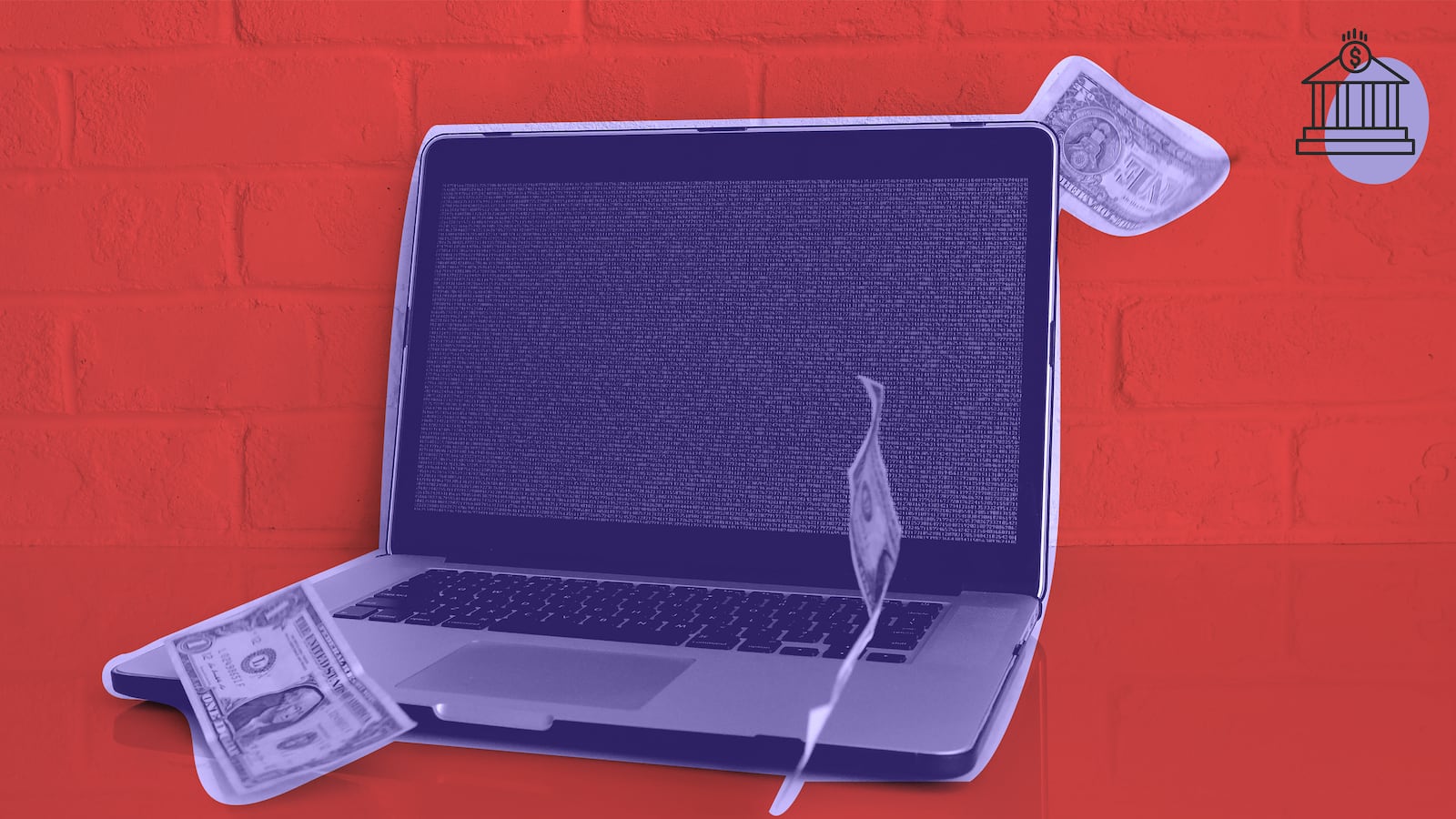By Grace Dobush
Just 4 percent of Americans don’t own a cell phone. But a quarter of people living in the U.S. are unbanked or underbanked, meaning they also used pawnshops or payday lenders to get by. People of color, immigrants, people living in poverty and people with disabilities are especially vulnerable.
About 6.5 percent of U.S. households have no bank account whatsoever, and another 18.7 percent have a bank account but also used alternative services, the FDIC found in 2018. More than a third of Americans don’t know how they’d deal with an unexpected bill of $400, according to the Federal Reserve.
The biggest problem with being unbanked or underbanked is the lack of access to good credit options, experts say.
“People going paycheck to paycheck often end up going to payday lenders in their community because of the lack of access,” says Alex Yu, vice president of marketing for the nonprofit Teachers Federal Credit Union in El Paso. The interest rates from predatory lenders greatly contribute to keeping people trapped in cycles of poverty.
Universal internet access could make it more possible for unbanked and underbanked people to fully participate in the financial system.
In a time when many banks have been cutting back on physical branches — and as Covid-19 pressed pause on in-person retail — banking deserts have become an issue in both urban and rural areas. Without bank accounts, it becomes more difficult to receive stimulus or unemployment benefits and nearly impossible to travel or start a business.
Some banks are now offering virtual branches to meet customers where they are, whether via video at a mall kiosk or via video chat on users’ mobile phones.
“Being unbanked is costly, emotionally taxing and too often leads to poor financial health,” says David Reiling, the CEO of Sunrise Banks, a Minnesota-based institution that partners with fintech companies and nonprofits to increase financial inclusion. One project, FAIR, offers checking, savings and credit-builder products to underserved people, no matter their income level or financial history.
One of the major reasons for people being underbanked is a lack of trust in the banking system. The FDIC found that 52.7 percent of underbanked households said they didn’t have enough money to keep in a bank account, 30.2 percent said they “don’t trust banks.” The main way to build trust is via human connections, says Pablo DeFilippi, vice president of Inclusiv, an association of community development credit unions. Inclusiv’s 300 member credit unions serve and are led by underprivileged communities.
“Tech has to go hand in hand with trust-building. For immigrants or people who live in rural communities, technology can be intimidating,” DeFilippi says. “Money is a mystery for many people, even you and me.”
Reiling says it’s important to meet customers where they are. “We’ve already seen how important digital services — in any industry — can be during the COVID-19 pandemic,” he says. There’s no one magic bullet, but he believes intuitive, affordable technology will help consumers enter the traditional financial landscape. “Universal internet and mobile access would be a great benefit to financial consumers.”
Meeting customers where they are is exactly what the Teachers Federal Credit Union in El Paso had in mind when they designed their first self-service branch. It looks like a vestibule with a traditional ATM, but it also lets you video chat live with a customer service representative if you need assistance. The ability to get personalized help virtually builds trust among credit union members.
“We’re a border community in El Paso, and we have a lot of first- or second-generation Latinos like myself. My parents grew up experiencing banking in Mexico, where you’d go to a traditional bank and wait there for hours,” Yu says. “When people come here to the U.S., there’s some hesitation. They still want a person to tell them they have the money in their account. But once you show them they can do everything from their phone, it opens everything up.”
Before TFCU temporarily closed its physical locations due to Covid-19, branch employees helped promote and explain online services to customers accustomed to banking in person. The credit union also recently launched virtual consultation services, where people can discuss their options with a representative via Zoom on their phone or computer.
Lack of credit options can also prevent people from starting businesses that would help improve their financial situations. Online businesses such as e-commerce have a lower barrier to entry than brick-and-mortar retail, but to sign up for a payment processing service you have to already have a checking account or credit card.
In rural areas, unreliable internet access has also been a hindrance to starting online businesses. The FCC plans to invest $20 billion over the next decade in 5G coverage for rural areas to spur economic development. That increased coverage could spur a new generation of entrepreneurs.
“People in our community might have internet on their phone, but it’s not unlimited, so they’re really cautious about what services or apps they use,” Yu says. “With universal internet, we could expand our online banking usage, especially for underserved areas. It would be amazing for us and for our customers as well.”






